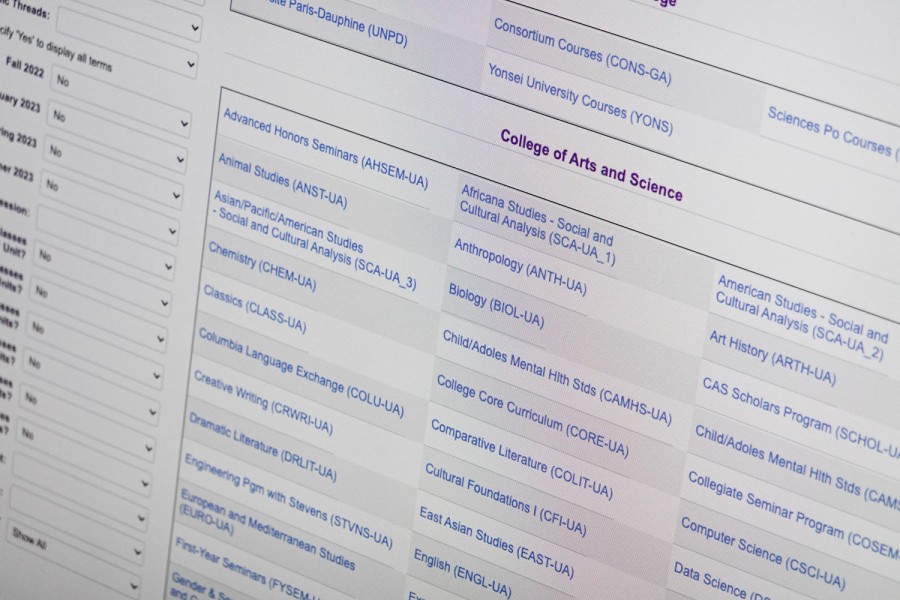Opinion: Electives teach more than what’s on the syllabus
Making room for electives that excite you can make you a better student.
(Kevin Wu for WSN)
February 1, 2023
The start of a new semester is accompanied by many feelings, some familiar, some foreign. As we enter the second week of the new semester, the honeymoon period of discussing syllabi, smiling our way through icebreaker activities and showing up extra early for our 8 a.m. classes mostly comes to an end. For me, the exhilaration of a new semester began dying down when I spent three hours on a 10-page reading for lecture, dozing off after every jargon-filled sentence.
To combat this feeling, I’m taking an elective: “What Really Matters? Leadership with No Regrets.” This two-credit course is not necessary for my major, and it is filed as an undergraduate class under the Robert F. Wagner Graduate School of Public Service. While it may not fulfill any academic requirements, it’s something that I look forward to in the week — and that’s arguably just as important.
As soon as I read the course description, I knew I had to take this class. Meditations are scheduled into every lecture, and weekly integration papers call upon students to introspect and apply the deeply relevant readings to their own journeys of authenticity, self-care, emotional understanding, forgiveness, happiness and more.
For many students taking demanding classes, satisfying major and minor requirements, busy schedules restrict the exploration of creativity and self-improvement. The one thing that we lack time for is, in fact, what makes us better students.
Different kinds of electives can stimulate students in different ways. Perhaps you may decide to take an art elective. Think back to your elementary years when you would go to art class every week. That bright and blissful classroom nurtured a creative side in every student — regardless of their artistic ability. In fact, creating art at any level can significantly reduce levels of cortisol, the steroid hormone associated with stress. Taking an art-related elective can effectively contribute to your ability to thrive as a student by reducing inevitable stress from a new semester. The reduction of cortisol can lead to a happier student body overall.
Other electives can actively coach students through difficult emotions and feelings. One of the most popular classes at NYU is The Science of Happiness, a course centered around the idea of attaining happiness. The popularity of this class speaks for itself, as students crowd its lecture halls and rave about the impact of the class long after taking it.
The success stories of students who have taken such electives are abundant. Former students of “What Really Matters?” raved about its impact on their well-being. They echoed that if you commit to the teachings, the class will transform you.
Besides alleviating the day-to-day student pressures, taking elective courses outside of your intended field of study also encourages novel thinking and a new perspective on daily challenges. Exploring topics in a college environment can lead to new hobbies or specializations that we never even knew we were interested in. Since roughly 80% of college students end up changing their major at some point, it never hurts to try new things.
College should be about much more than checking the boxes of academic requirements and rushing to graduation. Above all, it should be about self-improvement and enrichment. By taking elective courses that truly resonate with you, you significantly enhance your college experience. Not only can electives reduce stress and increase happiness, they also teach necessary life skills and introduce us to parts of ourselves that we may not have been aware of before.
Stress-relief, self improvement and a better college experience? Sign me up!
WSN’s Opinion section strives to publish ideas worth discussing. The views presented in the Opinion section are solely the views of the writer.
Contact Neya Kidambi at [email protected].



























































































































































